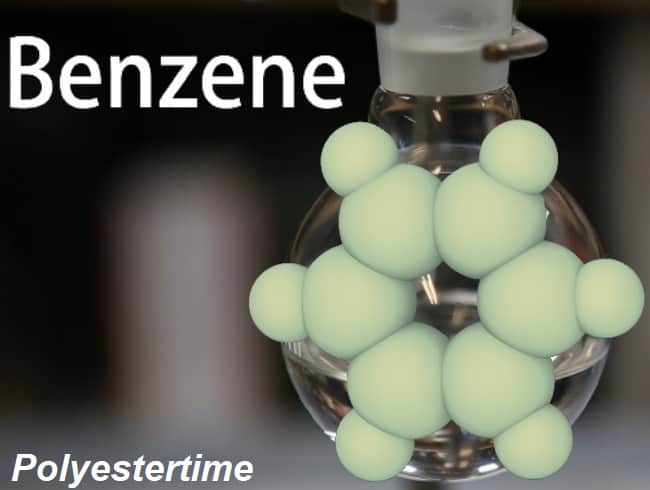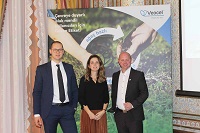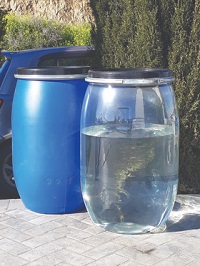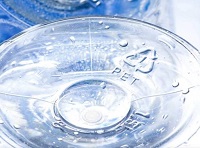Petrochemical Oil Sanctions Polyester 27-12-2019 - Arhive
Petrochemical Oil Sanctions Polyester
Crude Oil Prices Trend

-OUTLOOK ’20: The Asian benzene conundrum set to persist on weak downstream
The Asian benzene market will probably continue to find little support from its key downstream sectors in 2020 including styrene monomer (SM), which constitutes 50% of its consumption.
Benzene market in Asia has been on an uptrend until September after hitting a low of $514/tonne FOB (free on board) Korea in early January.
The opening up of the arbitrage window to the US from April helped reduce supply in Asia, as tight supply conditions in the US fueled demand for Asian lots.
This was also opportune as demand for benzene in China began to soften as the effects of the US-China trade war started to bite.

-IMO 2020 rules may impact GCC oil exports
Dubai – Oil markets will go through a major transformation as new regulations covering the sulphur content of marine fuels take effect from January 1, 2020 and may have an impact on the regional countries due to high level of sulphur content in their crude.
The International Maritime Organisation (IMO) has ruled that from January 1, 2020, marine sector emissions in international waters will be slashed. The marine sector will have to reduce sulphur emissions by over 80 per cent by switching to lower sulphur fuels. The rules define that the global 0.5 per cent sulphur cap will enter into force in 2020, and more than 70,000 ships will be affected by the regulation.

-VEOCEL™ Takes Initiative With ‘Hands On’ Motto To Draw Attention To Hidden Plastics In Wet Wipes
Intriguing information is shared regarding the plastics hidden inside wet wipes that are widely used in our everyday lives during the press conference held by Lenzing Group to raise environmental awareness.
Accordingly, less than 10% of the consumers are aware of the fact that most of the wet wipes have considerable amount of plastic material inside them. Lenzing introduced VEOCEL™ fibers in order to guide consumers who would like to make sustainable and environment-friendly buying decisions as well as the ‘Hands On’ initiative aiming to promote the consumers to purchase biodegradable products.
Manufacturing environment-friendly special fibers from renewable wood raw material, Lenzing Group held a press conference intending to increase environmental awareness to promote the usage of more sustainable raw materials.

-Cypet’s new blow molding technology makes world record PET drums
A company from Cyprus, Cypet Technologies Ltd., has developed a new technology for one-step injection stretch blow molding — and at K 2019, it produced a giant 120-liter PET drum at the show.
Single-stage blow molding machines injection mold PET preforms and blow mold them on a single machine. A conventional single stage uses a vertical clamp to injection mold preforms, then a horizontal clamp for blowing bottles.

-PolyOne buys Clariant colour, additive masterbatch part
PolyOne Corporation, a leading global provider of specialised polymer materials, services and solutions, is buying the global colour and additive masterbatch business of Clariant. The two have signed a deal in this connection. PolyOne is also buying the colour and additive masterbatch business of Clariant Chemicals India and has signed a related agreement.
The combined net purchase price is $1.45 billion.
“This will be a truly transformational acquisition for both PolyOne and Clariant customers and employees around the world. Together, we will benefit from the combined ingenuity, passion and expertise of two global leaders in colour design, additive technologies and sustainable solutions,” said Robert M Patterson, chairman, president and chief executive officer, PolyOne Corporation. Petrochemical Oil Sanctions Polyester

-Collections up but recycling rate stagnant in US
More than 1.8 billion pounds (816,466 tonnes) of PET bottles were collected for recycling in the US last year, up 5 per cent on 2017, according to the National Association for PET Container Resources (NAPCOR).
However, despite the rise in collections, the country’s recycling rate remained flat at just below 29 per cent. In fact, according to NAPCOR, the recycling rate has hovered around the 29-30 per cent mark for the last decade.
NAPCOR’s report found an on-going shift away from exports and toward domestic outlets, with US recyclers purchasing 16 per cent more PET bottles than the previous year. Also up was the amount of recycled PET going into bottles.

-UK company urges manufacturers to exceed legislation
Medical device manufacturers need to ensure their packaging solutions exceed mandatory EU legislation to safeguard quality standards and maintain a contaminant-free environment, says Ulma Packaging UK.
Currently, medical device packaging processes must be compliant with ISO 11607, which is frequently updated to ensure maximum possible patient protection. Product safety has been further tightened through the introduction of the EU’s new Falsified Medicines Directive (FMD) in February 2019, which enhances traceability and sterility through mandatory, unique product identifier barcodes and tamper evident features.

-Is This The Beginning Of A Shale Crisis?
Banks are cutting their lending to struggling U.S. shale drillers, another blow to an industry that has long been dealing with a questionable business model.
Banks are restricting lending and revising their estimates on the value of some shale reserves, according to the Wall Street Journal. Even the largest banks, such as JPMorgan Chase and Capitol One Financial Corp., are expected to cut their exposure to the shale industry. Sources told the WSJ that the banks are growing more concerned that if drillers go bankrupt, their assets – the value of which could be declining – may not cover the outstanding loans.

-FUTO develops indigenous technology for recycling waste
The Vice-Chancellor of the Federal University of Technology, Owerri, Prof Francis, has said the university developed an indigenous technology for recycling waste into marketable and useful products.
Eze, who disclosed this at the 32nd convocation of the university, noted that as a result of the development waste materials no longer constituted a nuisance on the institution’s main campus.

Petrochemical Oil Sanctions Polyester
